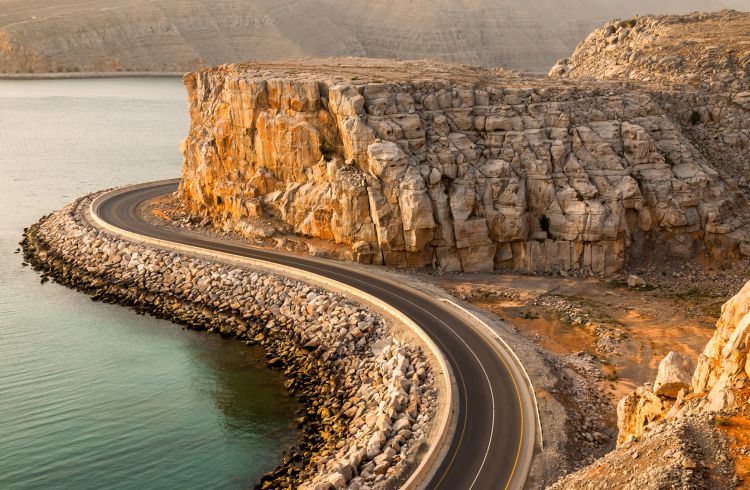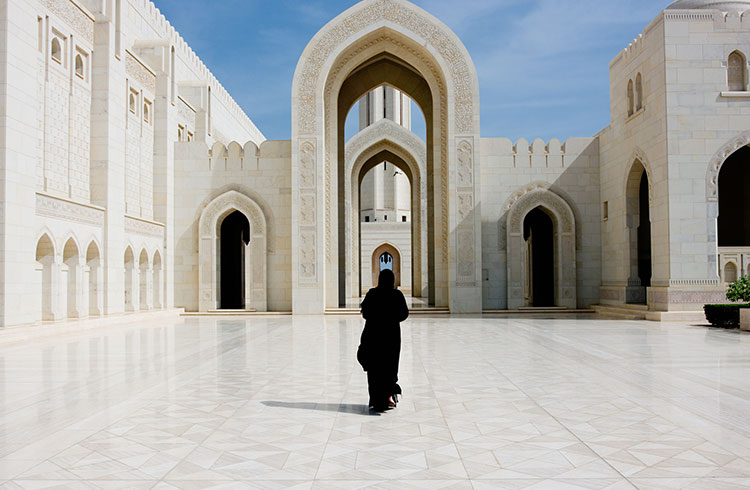Driving in Oman: Tips & Advice for Safer Road Travel
Planning a road trip around Oman? Learn how to stay safe while traveling on public transport and safely drive around Oman.
 Photo © Getty Images/Gabriel Vonas/Eye Em
Photo © Getty Images/Gabriel Vonas/Eye Em
The Royal Oman Police have taken to improve poor driver behavior by introducing laws and driver safety campaigns, however, Oman still has an issue with traffic incidents. In 2016, there were 6,279 accidents compared with 4,219 in 2015, and 692 driving related deaths.
- Traffic laws in Oman
- Road conditions in Oman
- Traveling offroad in Oman
- Road rules in Oman
- Public transport safety in Oman
- Taxi services in Oman
- Piracy risk in Oman
Traffic laws in Oman
The traffic laws in Oman are comprehensive and strictly imposed. Speed cameras are placed every 1.2 miles (2km) in Muscat, but there's a very generous tolerance of 11.8 mph (19kph)!
Normal rules, including wearing a seat belt, not talking on a mobile phone and driving under the speed limit all apply, and Omani police enforce these laws.
Road conditions in Oman
The road conditions in Oman tend to be comparable with western countries, although camels and goats can be a driving hazard straying onto the road, especially around Muscat after dark. Stay alert because hitting a camel is a lot like hitting a brick wall and will do similar damage to your car.
If you're driving away from major urban centers, take a little extra care. The roads are slippery after rain and a sudden downpour can lead to severe flooding when normally dry riverbeds overflow onto roads.
Other environmental hazards to watch out are soft sand and a salty crust called sabkha which can lead to loss of vehicle control on mountain roads.
The roads in Oman are busier than usual during religious and national holidays so allow extra time to get around.
Traveling offroad in Oman
When traveling to the desert you will need to drive a well-equipped 4x4 vehicle and travel in a convoy with other cars also stocked with extra water, gas, food and a charged cell phone. Let someone know where you are heading and how long you plan to be away, so they can contact assistance if you're unable to do so yourself.
Road rules in Oman
Roundabouts are commonplace, but the rules around them might be unfamiliar to you. In Oman, drivers on the inside lane always have right of way. If a driver on the inside lane is flashing their high beams at you, they're telling you to let them get off the roundabout.
But no-one will gesture rudely at you or shake their fist. Even a gentle tut-tut is unheard of – because road rage is illegal. Showing any kind of anger, even mild irritation, and you will be reported to the police.
It's also illegal to drive a dirty car. You need to keep it washed and buffed or face a potential on-the-spot fine of 10 Omani Rials (US$26).
Public transport safety in Oman
Can't be bothered washing a hire car? Take advantage of public transport and let someone else do the driving (and waxing). Public buses and coaches operated by MWASALAT offer a safe, clean and efficient way to get between Oman's cities and towns, and there is also a Muscat to Dubai service.
Always book in advance if you are planning to take a long bus ride. Make sure you have some Omani Rials ready to pay the driver.
Taxi safety in Oman
Oman has excellent taxis; they're safe, well-maintained and the drivers won't practice stunts while taking you to your destination.
Orange-badged taxis are owner-operated and just as safe, however, the price is negotiated up front and can vary. These taxis may also stop to pick up other passengers. If you want to the taxi all to yourself, just let the driver know.
Piracy risk in Oman
If you're going out to sea on either a public vessel or privately renting, know where you're going. Many areas around Oman are sensitive in relation to security, and border disputes.
The Islands of Abu Musa and Tunbs in the southern gulf are matters of contention with Iran and Iranian maritime officials often like to inspect vessels.
Piracy occurs off the coast of Saudi Arabia and Yemen.
Before heading onboard, make sure that there are enough life jackets, and emergency kit and working communication devices.
Related articles
Simple and flexible travel insurance
You can buy at home or while traveling, and claim online from anywhere in the world. With 150+ adventure activities covered and 24/7 emergency assistance.
Get a quote

2 Comments
Was this article funded by the Omani government? No, jail time for accidentally running a red light and fines for not keeping your car spotless are in no way “logical” or justified. Who honestly thinks that over-the-top punishments will keep people from making mistakes while driving? If they want to prevent traffic deaths, they might start with improving ambulance services.
"although camels and goats can be a driving hazard straying onto the road, especially around Muscat after dark"
I have been living in Oman for 19 years and driving for 4 of them. I have yet to encounter a camel or goat around Muscat.
"The roads in Oman are busier than usual during religious and national holidays so allow extra time to get around"
Oh no... I don't even know where you're getting this information from. .. It literally cuts down your travelling time by ¼ during holidays.
"sabkha which can lead to loss of vehicle control on mountain roads."
Sabkhas on Mountain roads? TIL..
"Oman has excellent taxis; they're safe, well-maintained and the drivers won't practice stunts while taking you to your destination."
Are they safe? Errr.. yes.. but actually no. I've been molested in the taxis and I am a male.
This article is inaccurate and you should be ashamed of yourself.